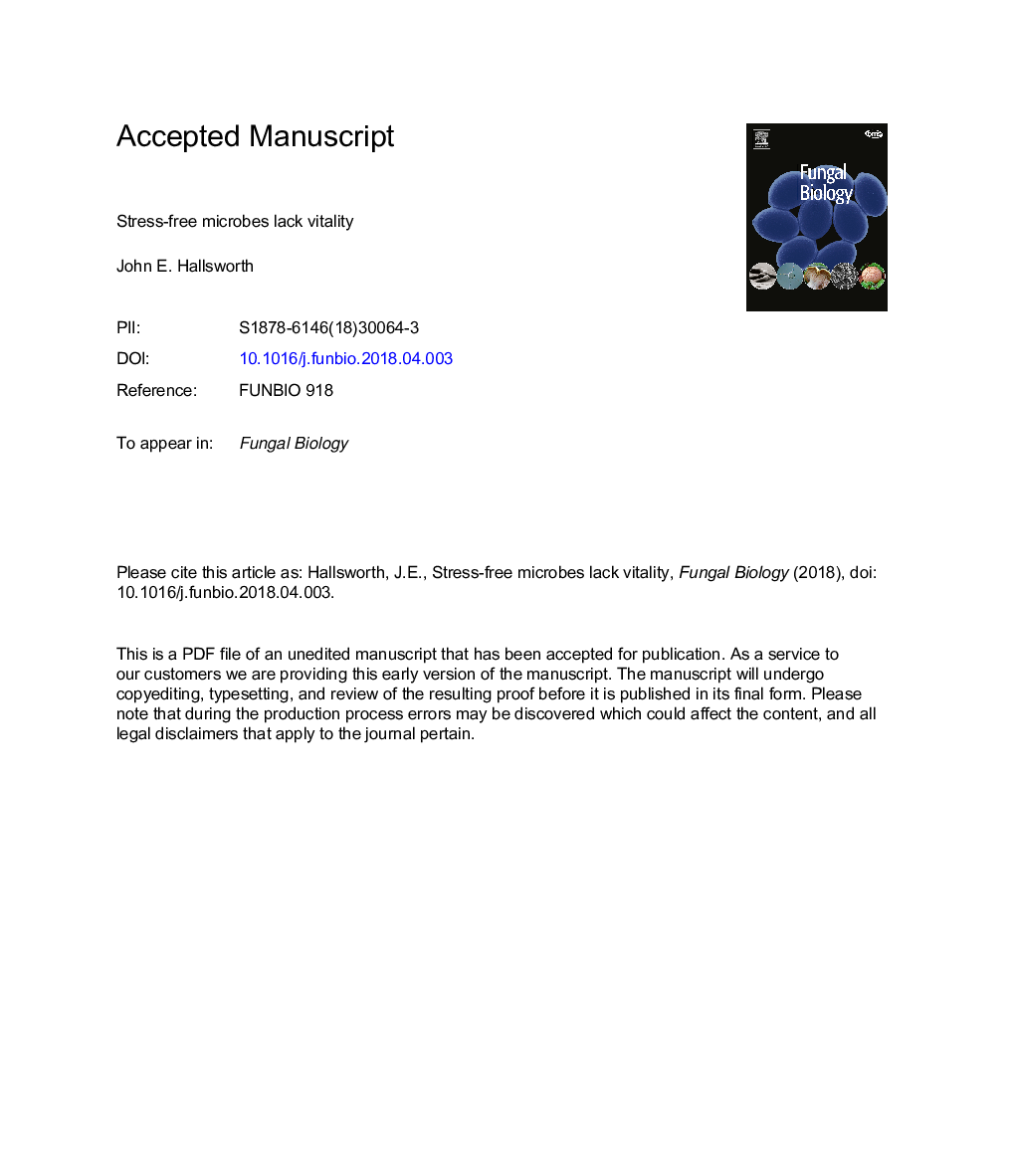| Article ID | Journal | Published Year | Pages | File Type |
|---|---|---|---|---|
| 8842732 | Fungal Biology | 2018 | 12 Pages |
Abstract
Stress is an inextricable aspect of life, and stress biology has been a field of intensive study over the last 200-300 years. In human psychology, we consider a stress-free condition to be one of relaxation or happiness, yet with respect to microbial cells we do not have a concept that describes being non-stressed. Stresses within, and stress tolerance of, microbial systems lie at the crux of critical global challenges, such as optimising soil- and plant-health and crop yields; reducing food spoilage; bioremediation of polluted environments; effective biological control and biofuel production; gaining insight into aging processes in humans; and understanding astrobiology. There is no consensus on how to measure cellular stress, or even how we define it. 'Stress' implies that physical forces act on the microbial system in such a way that impairs its ability to function. Ironically, however, a cell that exhibits optimal growth also has reduced energy generation, is less resilient to change, and can have poor competitive ability. Furthermore, rapid growth is associated with a high level of oxidative damage and compromised vitality of the system. Stresses induced by temperature, pH, water activity, chaotropicity, reactive oxygen species, dehydration-rehydration cycles, ionizing radiation, and changes in turgor or other mechanical forces are well-known. Our knowledge of cellular stress responses, such as signal-transduction pathways, compatible-solute metabolism, protein-stabilization proteins, and plasma-membrane adaptations, is also considerable. However, we have limited understanding of the complex and dynamic stresses that typically occur in microbial habitats or industrial systems, and how these impact the biophysics, cellular biology and evolutionary trajectories of microbes. There is also a paucity of information on why the cellular system ultimately fails under extremes of stress, and it is even debatable whether any microbe can ever be completely stress-free. However, cells that exhibit optimal rates of biotic activity are likely to exhibit low ecological fitness compared with those that are moderately stressed; in other words, stress can enhance microbial vitality, vigour and resilience. 'Stress' is sometimes applied mistakenly to describe the effects of toxic substances that have target site-specific modes-of-action (e.g. antibiotics) rather than and do not inhibit the cell via any type of stress-mediated mechanism. Whereas terms such as 'rapid-growth stress', 'nutrient stress' and 'biotic stress' span a range of logical categories, their modes-of-action do usually involve a biophysical component. Stress can impact all levels of biology (from biomacromolecules to ecosystems), is a potent driver for evolutionary processes and - it could be argued - is an inherent property of life itself. The published articles that follow include a number of unprecedented findings and were compiled for this special issue Biology of Fungal Systems under Stress. Collectively, they are testament to the breadth and importance of the stress-biology field.
Related Topics
Life Sciences
Agricultural and Biological Sciences
Agricultural and Biological Sciences (General)
Authors
John E. Hallsworth,
